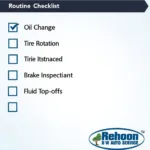Selling a car that’s seen better days can feel like a daunting task. You know repairs are needed, but the thought of fixing everything before selling feels overwhelming and potentially expensive. Don’t despair! You have several options for selling your car “as is,” even if it needs some TLC. Let’s explore the best places to sell your car that needs repairs and help you make the most of your situation.
Understanding Your Options: To Repair or Not To Repair
The first question to ask yourself is whether the cost of repairs outweighs the potential increase in sale price. While fixing everything might seem like the best way to attract buyers, it’s important to be realistic about your return on investment.
- Minor Repairs: If your car needs minor cosmetic fixes like a paint touch-up or a new headlight, these can be relatively inexpensive to address and might make your car more appealing to potential buyers.
- Major Repairs: For significant mechanical issues like engine problems or transmission trouble, getting quotes from reputable mechanics is crucial. Compare these costs with the potential increase in your car’s value after repairs. It might not always make financial sense to invest in major repairs.
 Mechanic inspecting car engine, determining repair costs
Mechanic inspecting car engine, determining repair costs
Where to Sell Your Car That Needs Repairs
Once you’ve weighed the pros and cons of repairs, it’s time to explore the best avenues for selling your car:
1. Private Sale: Reaching Individual Buyers Directly
- Pros: Potentially higher profits compared to selling to a dealer.
- Cons: Requires more effort in advertising, screening potential buyers, and handling the paperwork.
Tips for Success:
- Be Transparent: Honestly disclose the repairs needed. This builds trust and avoids future complications.
- Set Realistic Expectations: Understand that you’ll likely receive lower offers than for a car in perfect condition.
- Highlight the Positives: Focus on the car’s good points, such as a reliable engine or recent maintenance history.
- Utilize Online Platforms: Leverage websites and apps like Craigslist, Facebook Marketplace, and Autotrader to reach a wider audience.
2. Trading In to a Dealership: A Quick and Convenient Option
- Pros: Streamlined process, no need to find a private buyer, can be used as a trade-in for your next vehicle.
- Cons: Typically receive a lower value than selling privately, dealerships factor in repair costs.
Tips for Success:
- Get Multiple Quotes: Contact several dealerships to compare trade-in offers for the best deal.
- Understand Depreciation: Be aware that dealerships will factor in the car’s condition and necessary repairs when determining its value.
- Negotiate: Don’t be afraid to negotiate, but be prepared to walk away if the offer isn’t satisfactory.
3. Selling to a Cash-for-Cars Service or Junkyard: The Fastest Solution
- Pros: Fastest method, no need for repairs or advertising, immediate cash payment.
- Cons: Lowest payout compared to other options, typically reserved for cars in poor condition.
Tips for Success:
- Compare Quotes: Contact multiple cash-for-cars services and junkyards to compare offers.
- Understand the Process: Be clear on how the company determines the car’s value and any associated fees.
- Consider Parting Out: If you’re mechanically inclined, you might earn more by selling valuable parts individually. However, this option is time-consuming.
4. Donating Your Car: Turning Your Asset into a Charitable Contribution
- Pros: Supports a worthy cause, receive a tax deduction.
- Cons: May not receive any direct cash payment.
Tips for Success:
- Choose a Reputable Charity: Research charities that accept vehicle donations and align with your values.
- Understand the Tax Implications: Consult a tax professional to determine the potential deduction amount.
Making an Informed Decision
Ultimately, the best place to sell your car that needs repairs depends on your individual circumstances and priorities. Weigh the pros and cons of each option, consider your time constraints, and research your local market to make the choice that best suits your needs. Remember, even a car that needs work has value, and with the right approach, you can successfully navigate the selling process.


